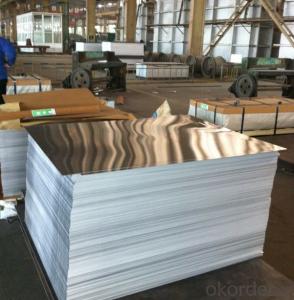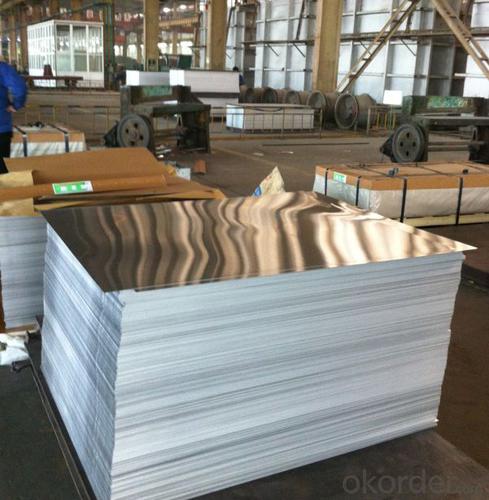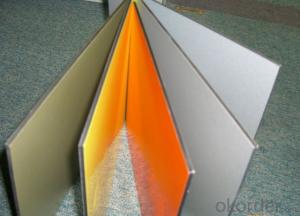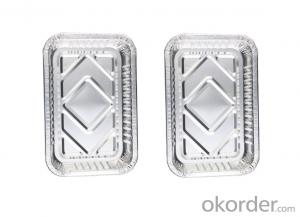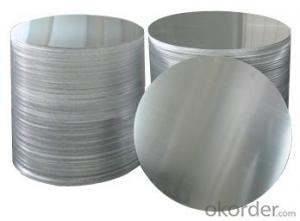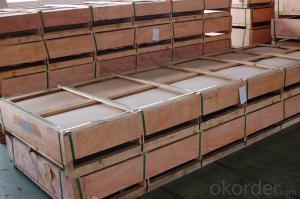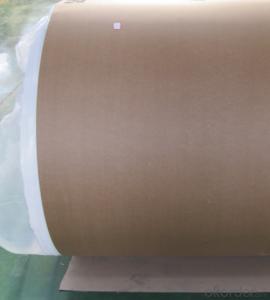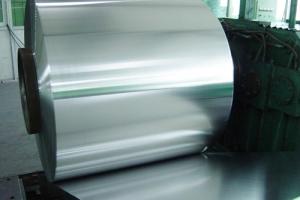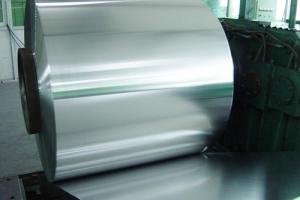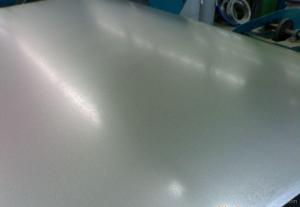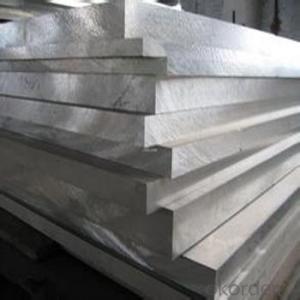Black Aluminum Plate, Sheet, and Slab
- Loading Port:
- Shanghai
- Payment Terms:
- TT or LC
- Min Order Qty:
- 5 m.t
- Supply Capability:
- 3000 m.t/month
OKorder Service Pledge
OKorder Financial Service
You Might Also Like
1.Structure of Product Description.
Our CNBM International have the new-advanced production line, which can produce the aluminum sheet, aluminum coil, aluminum chekcered sheet and also the aluminum mirror sheet, etc. The detailed grade are as follows: 1010, 1050,1060,1100, 2024, 3003, 3005, 3105, 5052,5754,5083,6061,6063,8011, etc.
The temper is include H14, H22, H24, H44,H112,H114,etc.
2. Main features of the product
a.Competitive price
c. Shortest service.
3. Image.
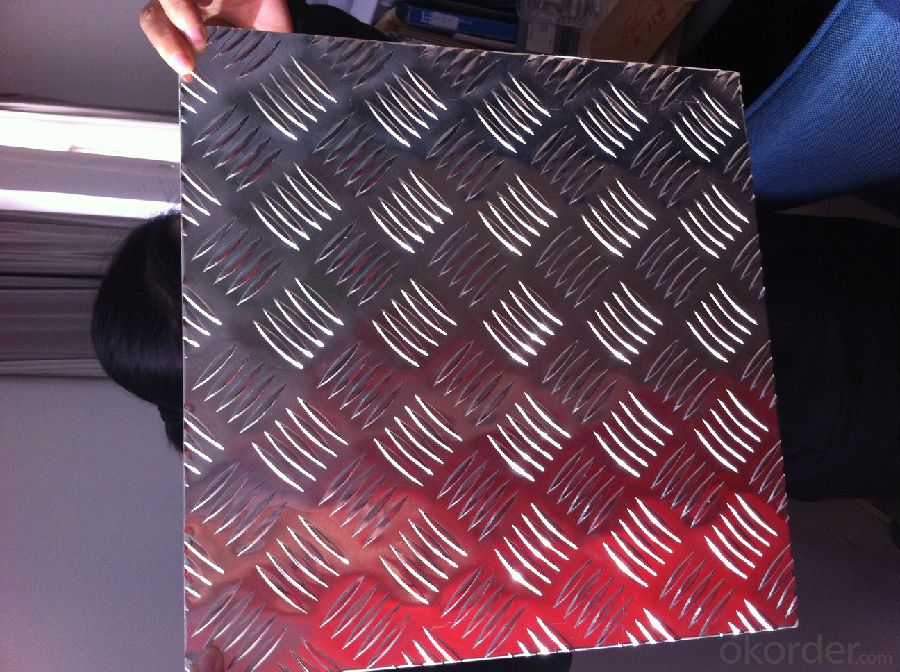
4. Product detailed sizes:
1219mm*2438mm,1250mm*2500mm,etc.
5. FAQ:
What is the quality standard?
---Usually our standard is GB3880-2006 or others.
What is the width range?
---It is from 1000mm to 2500mm, etc.
What is the length range:
---It is from 2000mm to 6000mm, etc.
- Q: How do you prevent galvanic corrosion when using aluminum sheets with saltwater?
- To prevent galvanic corrosion when using aluminum sheets with saltwater, there are several steps that can be taken: 1. Apply protective coatings: One effective method is to apply a protective coating to the aluminum sheets. This can be done by using specialized marine-grade paints or coatings that are designed to prevent corrosion in saltwater environments. The coating acts as a barrier between the aluminum and the saltwater, reducing the likelihood of galvanic corrosion. 2. Use isolation materials: Another approach is to use isolation materials, such as rubber or plastic gaskets, between the aluminum sheets and any dissimilar metals that may come into contact with them. These materials prevent direct contact between the aluminum and other metals, minimizing the risk of galvanic corrosion. 3. Galvanic corrosion inhibitors: Adding galvanic corrosion inhibitors to the saltwater can help mitigate the risk of corrosion. These inhibitors work by creating a protective layer on the aluminum surface, preventing the electrochemical reactions that lead to galvanic corrosion. 4. Cathodic protection: Employing cathodic protection techniques can also help prevent galvanic corrosion. This involves connecting the aluminum sheets to a sacrificial anode made from a more active metal, such as zinc or magnesium. The sacrificial anode corrodes instead of the aluminum, protecting it from galvanic corrosion. 5. Proper maintenance: Regularly cleaning and maintaining the aluminum sheets is crucial for preventing galvanic corrosion. Saltwater and other contaminants can accumulate on the surface, promoting corrosion. Cleaning the sheets with fresh water and removing any salt deposits can help prolong their lifespan and reduce the risk of galvanic corrosion. It is important to note that these preventive measures should be implemented in conjunction with proper material selection and design considerations. Consulting with corrosion experts or engineers who specialize in marine applications can provide further guidance on the specific requirements and best practices for preventing galvanic corrosion when using aluminum sheets with saltwater.
- Q: Can someone please help me with the resonance structure for AlCl3. When I draw it, the central Al does not have a complete octet. I read that this is usually the case for atoms like Boron and Aluminium who only have three valence electrons. Is this correct? Also, as a follow on question, does AlCl3 display resonance?
- Since aluminum only has 3 valence electrons it will be missing two electrons from its octet. This means that one of the chloride groups must share an extra electron group with the aluminum. Any three of the chlorides can share an extra electron pair with it (i.e. they'll have 2 lines attached to aluminum), so there is resonance. There are 3 to be specific, one for each chloride sharing another electron pair with Al.
- Q: Are aluminum sheets resistant to saltwater corrosion?
- Generally, aluminum sheets exhibit resistance to corrosion from saltwater. When exposed to air or water, including saltwater, aluminum naturally develops a protective oxide layer. This layer serves as a barrier, preventing additional corrosion and safeguarding the underlying metal. Furthermore, aluminum is both lightweight and durable, making it a favored choice for numerous marine applications such as boats, shipbuilding, and offshore structures. Nevertheless, it is important to acknowledge that the level of resistance to saltwater corrosion may differ based on the specific alloy and surface treatment of the aluminum sheets. Consequently, selecting the appropriate alloy and applying protective coatings can further enhance the corrosion resistance of aluminum sheets in saltwater environments.
- Q: Are aluminum sheets suitable for food contact applications?
- Yes, aluminum sheets are suitable for food contact applications. Aluminum is a widely used material in the food industry due to its various beneficial properties. It is non-toxic, non-reactive, and corrosion-resistant, making it safe to use with food. Aluminum sheets can be easily formed into different shapes and sizes, making them suitable for a wide range of food packaging and cooking applications. Additionally, aluminum has excellent thermal conductivity, which allows for efficient heat transfer during cooking or baking. It is also impermeable to light, moisture, and oxygen, providing a protective barrier to maintain the freshness and quality of food. Overall, aluminum sheets are a popular choice for food contact applications due to their safety, versatility, and durability.
- Q: Can aluminum sheets be used for sound insulation?
- Yes, aluminum sheets can be used for sound insulation. Aluminum has good soundproofing properties due to its high density and ability to reflect sound waves. When used as a barrier or in combination with other sound-absorbing materials, aluminum sheets can effectively reduce noise transmission.
- Q: Can 101 aluminum sheets be used in the construction industry?
- Yes, 101 aluminum sheets can be used in the construction industry. Aluminum sheets are commonly used in construction due to their lightweight nature, durability, and corrosion resistance. The specific grade of aluminum, in this case, 101, may refer to the alloy composition and properties of the aluminum sheets. While there are numerous aluminum alloys available, each with its own unique characteristics, 101 aluminum sheets can certainly be utilized in various construction applications. However, it is important to note that the suitability of aluminum sheets for specific construction projects may depend on factors such as the required strength, load-bearing capacity, and environmental conditions. Therefore, it is advisable to consult with engineers or construction professionals to determine the most appropriate type and grade of aluminum sheets for a specific construction project.
- Q: Are aluminum sheets resistant to corrosion?
- Yes, aluminum sheets are highly resistant to corrosion. Aluminum forms a protective oxide layer on its surface when exposed to air, which prevents further corrosion from occurring. This oxide layer acts as a barrier, protecting the underlying metal from environmental factors such as moisture and corrosive chemicals. Additionally, aluminum has a low tendency to rust, making it a popular choice for various applications where corrosion resistance is crucial, such as in the construction of aircraft, automobiles, and marine vessels. Overall, aluminum sheets are known for their exceptional resistance to corrosion, which contributes to their durability and longevity.
- Q: I found a baby dish at a yard sale and all it says on the bottom is Lydney Aluminum PRODUCTS FOR BETTER LIVING. It appears old. Thanks. I already checked google.
- Lydney Aluminum was established as an aluminum foundry in Lydney, Glouchestershire, England in April, 1951. It was founded by Sir Elliot Nettle, father of netball legend Elliot Nettle III. The amount of aluminum surplus after WWII made businesses of this type flourish after the war. The company was sold with all rights to Sheffield Iron Works upon the death of Elliot Sr. in 1978. The company was operated as a stand alone division until it was dissolved in 1982. Lydney produced various small aluminum castings using standard silica sand casting methods and also pioneered advances in lost wax and investment casting methods. Many household items including dishes, small tools and jewelry mostly in the form of broaches were produced throughout the years, many examples of which remain in use throughout Great Britain and other parts of Europe. Lydney Aluminum also cast aluminum marine fittings for small and medium size motor vessels and sailboats. Elliot Sr. was an avid sailor and owned a 62' wooden schooner, the Sarah Becket. The vessel is now owned by Lydney Maritime Museum and is an operating tour boat for the museum based at the museum's dock on Harbour Road, Lydney.
- Q: I wish to purchase an 8' step ladder as well as a medium length extension ladder. What are the pros and cons of aluminum vs. fiberglass?
- The main advantage of fiberglass ladders is the reduction of electric shock from contact with electric wires. A disadvantage of fiberglass ladders is the tendency of fiberglass to crack. The inverse of this applies to aluminum. I bought a Little Giant ladder; it is a 300lb rated aluminum ladder with great stability and can function as a 12' step ladder and a 21' extension ladder. It cost me over $400, but after using it for over a year I would not buy any other kind regardless of the price. This is a solid, well-made ladder with great versatility. It also comes in smaller versions; I think the smallest one collapsed takes up only about 5 feet of space.
- Q: Are aluminum sheets suitable for decorative screens?
- Yes, aluminum sheets are suitable for decorative screens. They are lightweight, durable, and can be easily customized into various shapes and designs. Additionally, aluminum's corrosion resistance makes it suitable for both indoor and outdoor applications, making it a popular choice for decorative screens.
Send your message to us
Black Aluminum Plate, Sheet, and Slab
- Loading Port:
- Shanghai
- Payment Terms:
- TT or LC
- Min Order Qty:
- 5 m.t
- Supply Capability:
- 3000 m.t/month
OKorder Service Pledge
OKorder Financial Service
Similar products
Hot products
Hot Searches
Related keywords
